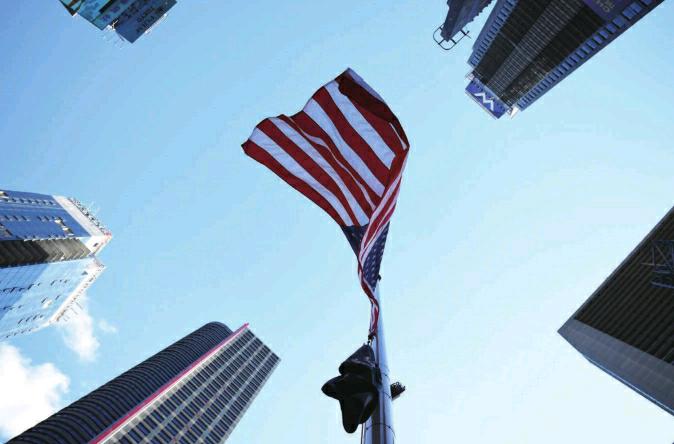An Incurable Social Ill
2017-11-06ByXINHUA
By+XINHUA
The Las Vegas mass shooting that killed at least 59 and injured more than 500 is a painful reminder of how easy it is for people in the United States to obtain guns and put innocent peoples lives at risk.
U.S. citizens have hoped for action following similar tragedies in recent years, but they are disheartened repeatedly and have come to realize that there is no magic cure to the chronic social ills of gun violence, given the structural problems lying deep beneath.
With painful memories of mass shootings at a gay nightclub, a movie theater, and a public school, among others, still wrenching hearts in the United States and beyond, the Las Vegas slaughter reopened old wounds, as the worlds most powerful country, with more than 300 million guns scattered nationwide, has long been plagued by gun violence.
According to non-profit organization Gun Violence Archive, the Las Vegas tragedy in early October marked the 273rd mass shooting in the United States in the fi rst 274 days of 2017.
So far this year, over 46,595 incidents of gun violence have occurred in the United States, killing at least 11,652 people and injuring more than 23,500, according to the archive.
U.S. society lapses into consternation and introspection following each mass shooting and outbreak of new bloodshed. The losses of life and rounds of terror stand in stark contrast to the inaction of government and institutions.
The western U.S. state of Nevada, where Las Vegas is located, is an epitome of the gunridden nation. In the so-called Silver State, it is legal for people aged 18 and over to carry a firearm openly without a permit, according to the website of gun rights organization NevadaCarry.org.
It is also legal in Nevada to purchase or sell a machine gun or silencer so long as the item is registered and meets federal regulations, the National Rifle Association (NRA) posts on its website.
The Las Vegas attack inevitably thrust the topic of gun control back into public debate, as many people on social media called on Congress to act to curb gun violence.
While united in grief, the nation lacks solutions and is unable to find a resolution to the chronic social illness: gun control has something to do with interest groups, partisan discord and gun culture.
Former U.S. President Barack Obama, who pushed for tougher gun control, once asked the nation: “The American people are trying to fi gure out, how can something have 90 percent support and yet not happen?”endprint
He may have had an answer in mind. The support of an overwhelming majority of Americans is simply too weak compared with the political prowess of interests groups.
Police retrieved at least 35 firearms and thousands of rounds of ammunition from the suspected shooter Stephen Paddocks hotel room and his house in Mesquite, Nevada.
The possession of huge quantities of weapons is hardly possible without powerful gun rights groups like the NRA.
The lobby groups have funneled millions of dollars into national and local elections to favor lawmakers who promise to block legislation for stricter gun control and pass measures to loosen gun regulations. Their clout and influence indirectly give an institutional green light to mass shootings.
Further, the gun rights groups also flex their muscles to exploit partisan divisions in the face of each new bloodshed. As a result, even modest gun safety le gislation is hard to pass in Congress. The latest mass shooting doesnt dramatically alter the dynamics of the partisan battle, as politicization of gun control continues to spread in U.S. society.
Indisputably, guns are ingrained in U.S. culture and society, as the right to bear arms is embedded in the Second Amendment of the U.S. Constitution.
But times have changed, and guns which were meant to be used for self-defense are abused, resulting in endless tragedies. In the worlds most powerful country, it is innocent people who pay the highest price for outdated gun ownership laws.endprint
